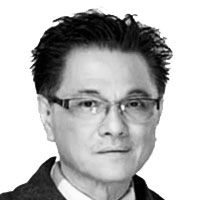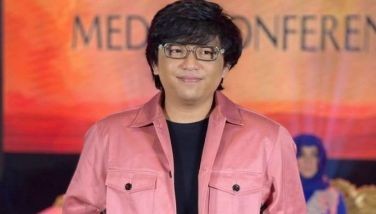How Tom Hanks deals with the angels & demons in his life

TOKYO —Hardly showing any sign of jetlag after a 12-hour-plus long haul from the US, Tom Hanks sat for the following exclusive Conversation with the same cool composure with which he tackles an enviable menagerie of roles that have made him perhaps Hollywood’s most versatile actor — as the AIDS-stricken lawyer in Philadelphia which won him a Best Actor Oscar in 1994 and as a mentally-challenged guy who claims that “life is like a box of chocolates” and goes on to hurdle every challenge in Forrest Gump which won him the same award the following year, making him the first actor in 50 years to achieve that back-to-back honor; as the hopeless romantic in Sleepless in Seattle; as an astronaut in Apollo 13; as a foreigner stranded on a US airport in The Terminal; and now, reprising his role as Harvard symbologist Robert Langdon in Angels and Demons which he first played in The Da Vinci Code, the first Dan Brown best-seller to be made into a movie which raked in more than $750 million worldwide.
Together with director Ron Howard, Hanks flew to this city for the Asian premiere last Wednesday, May 6, of Angels and Demons which is their fourth collaboration after Splash (1988), Apollo 13 and The Da Vinci Code which drew a backlash from the Church for its “radical” depiction of Christ.
In the highly-anticipated Angels and Demons, Langdon finds himself in the heart of the Vatican, attempting to save the Church from one of its oldest enemies: The Illuminati which will stop at nothing, even resorting to murder, to advance their goals. Will the suspense-thriller, far more breath-taking than The Da Vinci Code, spawn yet another international controversy?
Here are excerpts from my Conversation with Hanks:
You look very angry in your picture in the movie’s ad. What was on your mind when that picture was taken?
“I don’t know. I don’t even remember when it was taken. They must have taken it somewhere…a scene from the movie. I’m pondering something, looking at the sky. I’m scanning some statues somewhere.”
In the movie, you were asked, “Are you Catholic?” I’m asking you the same question.
“No, I’m not Catholic.”
But you are Christian, I presume.
“I am from the United States of America…I am not of the Jewish persuasion…I’ve been raised in one path after another that took me to some kind of church all the time that I was growing up. I was married in the same church where my wife (actress Rita Wilson) was baptized in, and my kids as well.”
Oh, a good Christian.
“Well, it’s my heritage.”
I’m wondering, did the The Da Vinci Code raise any doubts in you about the church?
“No. I don’t think it shook my or anybody’s faith. You know, when you’re talking about things that may or may not have happened 2,000 years ago, I think everybody gets some idea about it depending on what their inclination is. Fascinating to study, great to talk about, but what really matters is what we do day in and day out right now. There’s no use having an argument about what happened or what didn’t happen 2,000 years ago.”
Did reading Angels and Demons and doing its movie version affect your idea of the Vatican in any way?
“No. I think the Vatican is a huge organization that it’s impossible to fathom it. It’s kind of the postal service and the IBM and the United States government all rolled into one. You know, the first time I was in Rome, where we just came from for the movie’s world premiere, and that was years ago, I put on my long pants and I saw that there was so much beauty inside. There are chapels that go back centuries to the time of Pope Gregory. The Vatican is a huge institution that has a checkered past; it has done some things that are just so amazing.”
Have you ever met a pope?
“No.”
Do you look forward to meeting one?
“How do you meet a pope? Do you knock on a door and he’s there?”
Well, you are Superstar Tom Hanks and you can easily seek an audience with him.
“It’s easier said than done. Well, I’ve met The Queen. I’ve never met Elvis (Presley). Hahahaha! There are a lot of other people out there that I haven’t had a chance to say hello to. I’ve seen a pope from a distance, though.”
After reading the book and doing its movie version, did the The Da Vinci Code make you look at The Last Supper in a different way?
“No. What I’ve done is look at the other renderings of The Last Supper. Da Vinci painted but there are millions of other paintings of The Last Supper and you will notice that there are as many interpretations of The Last Supper. You know, all those paintings at that time were the works of the artists’ vision. They are not photographs of the day, but paintings done 1,300 years after the event. But the Da Vinci painting became the most popular, in the way that Mt. Rushmore may not be the faithful pictures of George Washington and Thomas Jefferson, they just became the most popular versions.”
Do you think Angels and Demons will draw the same reaction from church leaders as did the The Da Vinci Code?
“No, no, no. I just read a positive review of the movie in The Vatican Today newspaper. The review says that it’s a nice movie. It’s not a controversial movie although it’s almost perhaps subversive in some way. You know, here’s Robert Langdon, the symbologist character I’m playing, who is no fan of The Vatican and vice-versa. And yet, he plays a key role in the conclave, the selection of the new pope. Like the The Da Vinci Code, Angels and Demons is a fictional story and whatever controversy that is in it is only worthy of a dinner-table conversation.”
Do you believe in angels — you know, that they come in many different forms and not always with wings?
“Oh yes, I do. I married one. My wife is an angel. I don’t believe all angels have wings. They are everywhere — nice, benevolent creatures that make the world a better place. I love angels and I think that I am surrounded by many of them.”
What about the demons in your life? How do you deal with them? Do you pray for divine guidance?
“Ah, no. When I pray, it’s for acceptance and grace, you know. I think that’s the most that I can hope for. Demons? I don’t deal with them.”
Which is more emotionally-challenging to do, the The Da Vinci Code or Angels and Demons?
“Well, the The Da Vinci Code was tough because that was Robert Langdon’s first view of dead bodies and that brand of evil. With Angels and Demons, he definitely has to help solve the problem and the crimes that are going on. The emotional investment in both movies is quite the same.”
Stem cell is mentioned in the book. Are you for it or against it?
“Yes, I am for it. I don’t see why anybody should be against it. I think technology is an example of enlightenment and enlightenment is part of God’s work.”
You’ve played all kinds of roles. Which of your performances is most memorable to you?
“It’s hard to say which one. You see, the end result of a movie...I don’t know how to judge it because that’s me, and I remember the day and the time and the year when I did a particular movie, how old my kids were, and I remember the stuff that I was doing at that particular time. We have photographs all over our house. I have a beard in one and I look different in the others. All my movies make up for a satisfying memory.”
What role, if any, wouldn’t you dare play?
“Is there one role that I wouldn’t dare play? I can’t think of any. There are certain types of stories or themes that I am not interested in playing…I don’t know what they are. You know, it’s very easy to say ‘Yes’ to an awful lot of things especially if the project looks attractive and it pays a lot of money, then someone’s going to do it. But the instinct to say ‘No’ is something that cannot be denied. You have to weigh it whether it’s worth your time and effort. So I can’t say that there’s a role that I would never ever play.”
How do you usually prepare for a role? Do you talk to the person if it’s a real one you’re playing?
“There’s research to be done. Sometimes, you make the whole thing up. But it involves a lot of questions that crop up in my head 24 hours a day. And I pursue the answers wherever I can. If it’s a book that I have to read or a person I can talk to, I do it.”
I presume that you believe in God.
“I think you’ll be foolish not to believe in God.”
Face-to-face with God, what would you tell Him?
“What would I tell Him? Oh, not a thing. I’d just ask Him a question — ‘How do you do? Are you doing okay?’ That’s all I would tell God.”
(E-mail reactions at [email protected] or at [email protected])
- Latest
- Trending


































